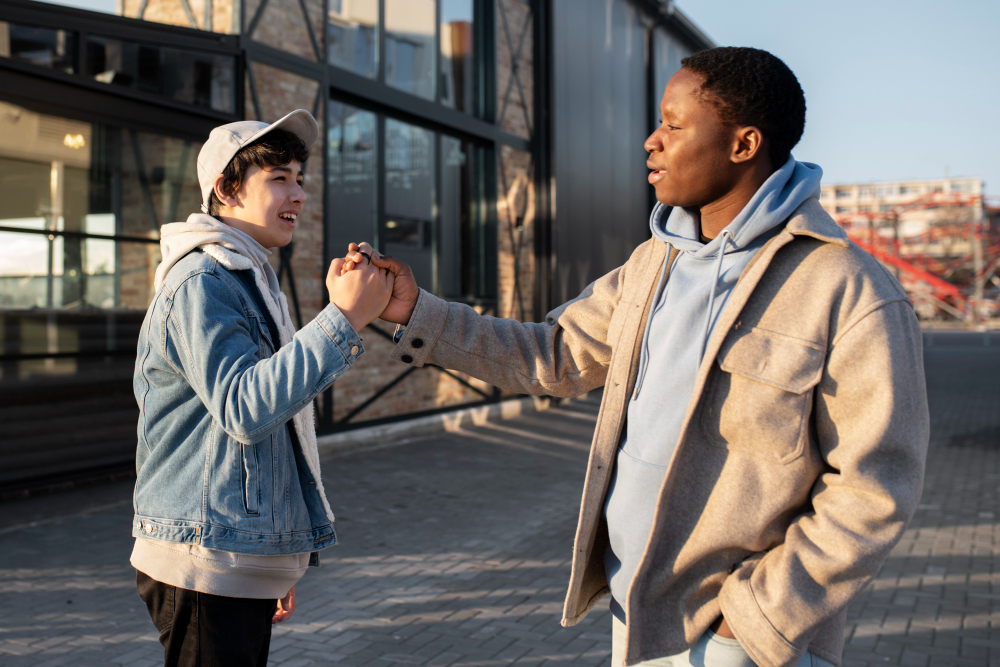Life occasionally throws situations our way where it appears that someone isn’t genuinely interested in forming a friendship. Certain unmistakable signs include their reserved demeanour during interactions, a consistent lack of initiative in reaching out, and a perpetual stream of excuses to avoid making plans.
Why Recognizing True Friendships Matters
Human beings are inherently social creatures, naturally desiring companionship and the company of others. While establishing and maintaining friendships is crucial to social and everyday life, finding like-minded individuals willing to share their experiences becomes challenging with age.
Whether you’re meeting someone new or evaluating an existing connection, uncertainty may arise about how they perceive you as a friend. Given the time constraints, investing your energy in cultivating genuine friendships with those who truly value your presence is advisable. If you sense someone isn’t interested in being your friend, it might be time to reassess the relationship.
Signs Someone Doesn’t Want to Be Your Friend
Identifying when someone isn’t genuinely interested in friendship can be straightforward or subtle, as relationships naturally evolve. Here are some signs to watch out for:
1. You Always Reach Out First
While acknowledging life’s busyness, it’s a red flag if you consistently find yourself taking the first step in reaching out to a supposed friend through phone calls, texts, or emails. If most communication efforts originate from you, it may indicate that the other person doesn’t consider you a friend.
2. Lack of Genuine Enthusiasm
Another indicator is the level of interest a person demonstrates in a personal relationship. Pay attention to their responses during interactions; if they offer one-word replies or lack enthusiasm when hearing from you, especially considering you initiated the contact, it suggests a lack of genuine interest in being friends.
3. Being Reserved or Rude During Interactions
The way a person communicates can reveal their level of interest. A friend typically engages in relaxed language, shares jokes, and interacts light-heartedly. Conversely, someone who doesn’t see you as a friend might use more official or formal language, offering clipped responses during in-person meetings or conversations.
4. Avoiding Meetings or Constantly Canceling Plans
A painful realization of someone uninterested in friendship is their avoidance of spending time with you. Invitations for drinks, gallery openings, or casual visits to your place are consistently met with excuses for non-attendance. In more distressing situations, they may agree to meet but cancel on the scheduled day, negatively impacting both the friendship and your well-being.
5. You Put in More Effort Than They Do
Actions such as calling to check in, arranging meetings, or sending thoughtful gestures are ways to demonstrate care in a friendship. If you find yourself consistently putting in more effort than the other person, the friendship may be perceived differently on their end, potentially as something less than genuine friendship.
6. They Do Not Engage With You on Social Media
Social media interactions matter. If they consistently ignore your posts or comments, it could indicate they don’t want to be associated with you publicly.
7. They Only Talk About Their Interests
Even if a person ticks some friendship boxes, the topics of your interactions can reveal their true feelings. Suppose your acquaintance dominates conversations with discussions about their achievements, weekly activities, and challenges, leaving little room for your input. In that case, it indicates a one-sided dynamic where they view you more as a sounding board than a true friend.
How to Handle a One-Sided Friendship
Choosing friends wisely is vital for a fulfilling life. If you sense a one-sided friendship, acknowledge the signs. Understand that not everyone will connect with you, and that’s okay. Redirect your energy to those who appreciate your friendship.
It’s essential not to take it personally. People have their reasons, and it does not reflect your worth. Focus on the friends who stand by you through thick and thin, appreciating the quality of connections over quantity.
Conclusion
Recognizing signs of a fading friendship is crucial in a world where genuine connections are invaluable. Don’t be disheartened if not everyone reciprocates your friendship. Cherish those who stand by you, and let go of connections that don’t nourish your well-being.
FAQs
What should I do if I always initiate conversations?
If you consistently make the first move, evaluate the effort from the other side. If it’s minimal, consider focusing on connections that reciprocate.
How can I tell if someone is uninterested in a personal relationship?
Pay attention to their enthusiasm during interactions. One-word responses and lack of engagement could signal disinterest.
Is social media engagement important in friendships?
While not decisive, consistent social media silence may indicate a lack of interest in maintaining a public connection with you.
How do I handle constant plan cancellations?
Address the issue calmly. If it persists, it might be time to reevaluate the importance of the friendship in your life.
Why is it essential to let go of one-sided friendships?
One-sided friendships can be emotionally draining. Redirect your energy to those who reciprocate, fostering healthier and more fulfilling connections.
